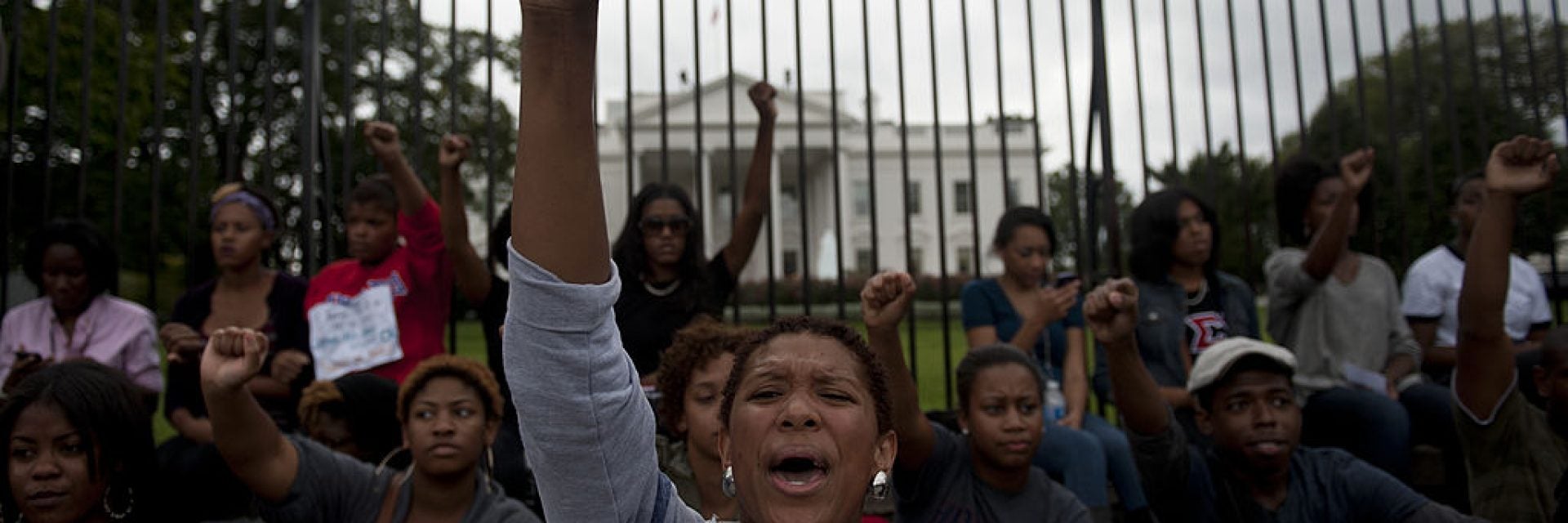“There are years that ask questions and years that answer,” Zora Neale Hurston taught us in her seminal work, Their Eyes Were Watching God. For Black people in the United States and throughout the diaspora, this last decade has asked some serious questions and given some necessary answers that have reshaped and revealed society as a whole.
As always, Black people laughed and loved through the struggle of it all. Still, these were years that we grappled with definitions and boundaries of community and what it really means. About Blackness, what it encompasses, and what it expects. These years asked us will we stand up for Black women and girls even when, especially when, it’s difficult.
We also felt the loss of giants in our beloved Madiba, former South African president and political prisoner Nelson Mandela, Cuban president and revolutionary Fidel Castro, the indomitable African National Congress (ANC) leader Winnie Mandela, Republic of New Afrika leader, Malcolm X Grassroots Movement founder, and Jackson, Mississippi, mayor Chokwe Lumumba, and so many more.
And state violence persisted.
During a decade in which the FBI placed revolutionary and political prisoner Assata Shakur on the Most Wanted Terrorists list, the agency also openly return to its J. Edgar Hoover days with the creation of Black Identity Extremists. Two Cleveland police officers did a drive-by on Tamir Rice, a 12-year-old child. And with the state-sanctioned killing of Eric Garner, and later, the death of his daughter Erica Garner, Frantz Fanon’s words loomed large:
“We revolt simply because, for many reasons, we can no longer breathe.”
But, in all things, joy. From Ethiopian Airlines making history with the deployment of its first all-female crew, to Simone Biles kicking ass and taking names at the Olympics, to a historical number of Black women running for and taking political office, to successful protests and movements that made the walls comes tumbling down, we won over and over again. Even if that means that, as we move head and heart first into 2020, we have nowhere else to hide.
This list is by no means exhaustive, but in addition to the aforementioned stories, it does reflect on a decade of being and becoming, of realization and revolution, of radical Black movement and possibilities.
The State of Georgia Executed Troy Davis
On September 22, 2011, Troy Davis, 49, was executed by the State of Georgia—even though evidence pointed to his innocence in the 1989 shooting death of police officer Mark MacPhail.
In the last hours before his execution, his legal defense team petitioned the Georgia Supreme Court to spare his life; the Court denied the request. His team then took the fight to the United States Supreme Court, who after deliberating for over five hours, also refused to grant a stay of execution.
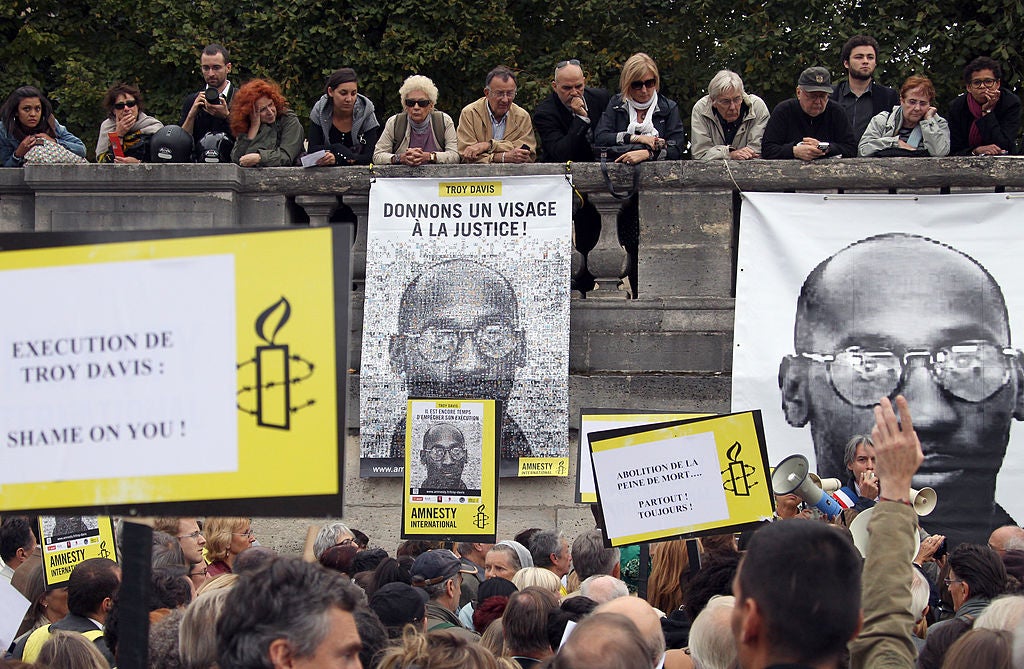
Before the State of Georgia lynched Davis, he said these final words:
“Despite the situation that you’re in. I’m not the one who did it. The incident that night was not my fault. I did not have a gun. I am sorry for your loss, but I did not personally kill your son, father, brother, I am innocent. To my friends, I urge you to continue to fight, look deeper into this case to find the truth. For those about to take my life, may God have mercy on your souls; may God bless your souls.”
Davis’ death highlighted even more the inhumanity of the death penalty, and amplified the work of such organizations as the Equal Justice Initiative.
Occupy Wall Street
New York City’s Zuccotti Park became the birthplace of an anti-capitalism uprising on September 17, 2011 with the emergence of Occupy Wall Street. And the effects of the populist movement on U.S. politics can still be felt today. During the advent of Occupy, the wealthiest one percent of the population controlled nearly 20 percent of national income; today that number is 40 percent, according to economist Edward N. Wolff.
The small group of protesters camping out in NYC’s financial district called out not just the one percent of the wealthiest people in the U.S., but also the wealthiest 0.1 percent, who own more wealth than the bottom 90 percent combined. As the number of the self-proclaimed 99 percent encamped at Zuccotti Park swelled into the hundreds, clashes with police increased. According to documents uncovered by the Partnership for Civil Justice Fund, the FBI—as part of the Domestic Security Alliance Council—investigated Occupy as a potential terrorist threat.
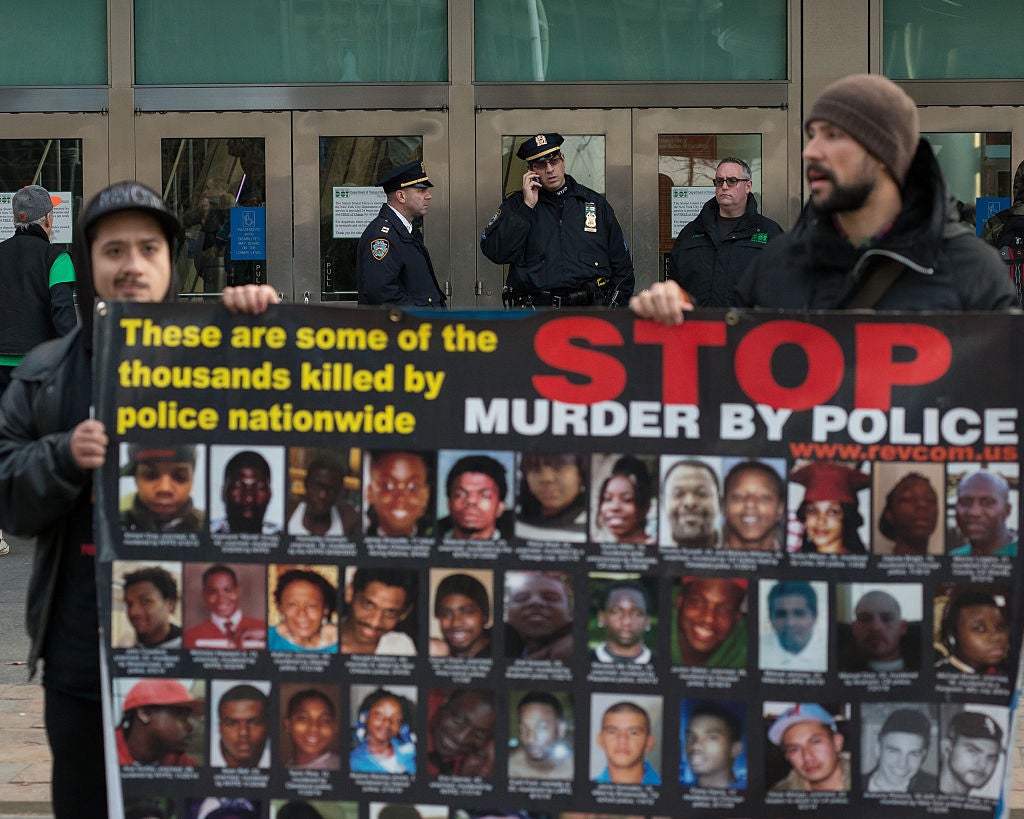
Though police ultimately removed protesters from the park, Occupy Wall Street led to a reenergized U.S. labor movement and reshaped the Democratic Party, as evidenced by the rise of Sens. Bernie Sanders and Elizabeth Warren.
The Killing of Trayvon Martin
Trayvon Martin should have turned 24 this year; instead, on February 26, 2012, he was targeted, stalked, and killed by George Zimmerman, a neighborhood vigilante who faced no legal consequence when he was acquitted in 2013.
Trayvon’s death sparked a movement, as Black people and accomplices across the nation hoped for and worked toward justice. Dream Defenders, a civil rights organization formed in Florida in the wake of Trayvon’s death, became a national force. President Barack Obama said at the time, “You know, when Trayvon Martin was first shot I said that this could have been my son. Another way of saying that is Trayvon Martin could have been me 35 years ago.”
There was also a “Million Hoodie March” held in New York City in solidarity with Trayvon’s family, and other community actions around the country. Organizers Patrisse Cullors, Alicia Garza, and Opal Tometi created the hashtag #BlackLivesMatter in response to Trayvon’s state-sanctioned killing and later co-founded the Black Lives Matter Global Network. Sybrina Fulton, Trayvon’s mother, is now running for office in Miami-Dade County.
The Movement For Black Lives
As questions about the leadership, structure, and goals of #BlackLivesMatter broke the surface, the structure of the “leader-ful” movement came into focus with the creation of the Movement For Black Lives (M4BL). Formed to raise global consciousness about state-sanctioned and state-perpetuated violence against Black, Latinx, and Indigenous people in the United States—as well as to actively dismantle the institutional and systemic oppression that makes extrajudicial killings in these communities just another day in this nation—M4BL is a family of over 50 organizations rooted in Black liberation. It has released a comprehensive platform that calls for an end to the war on Black people, an investment in community education, health, and safety, and a divestment from violent institutions that harm us, economic justice, including, but not limited to, reparations for the descendants of enslaved Africans.
Ferguson Uprising
In 2016, Twitter announced that #Ferguson was the most used social-issue hashtag in the 10-year history of the platform, while #BlackLivesMatter was third. That is how deep its impact goes. And it all started with the extrajudicial killing of Michael Brown, Jr.
When then-Ferguson, Missouri, police officer Darren Wilson gunned down Mike Brown on August 9, 2014, in the middle of Ferguson’s Canfield Drive, the racial powder keg beneath the nation erupted. Frustrations with the occupation of Black communities by militarized police forces, the so-called war on drugs—the storefront operation created to target vulnerable Black and Brown communities, mass incarceration and mass criminalization could not be contained.
“Hands up, don’t shoot!” — became a hotly-contested rallying cry as police officers attacked protesters with tear gas and rubber bullets, and the National Guard placed Ferguson on lock down. Then-Attorney General Eric Holder released an 87-page report from the DoJ’s Civil Rights Division, which determined that Ferguson Police official were engaged in a “widespread pattern or practice of violations of the U.S. Constitution or federal law.” As the decade has marched on, at least six Ferguson organizers and activists have died, whether by alleged suicide, lynching, shooting, or burning to death.
Brown’s mother, Lesley McSpadden, ran for Ferguson City Council in 2019, but lost to Ferguson protester Fran Griffin, who has been active in community organizing and sits on several local committees.
Daniel Holtzclaw Convicted
Former Oklahoma City Police Officer and rapist Daniel Holtzclaw was sentenced to 263 years in prison for the rape and sexual assaults of seven black women and one black girl, ranging in age from 17 to 58. He was found guilty of 18 of 36 charges. While the monstrous nature of Holtzclaw’s crimes are newsworthy in and of themselves, his conviction is also important because sexual violence is the second-highest form of police misconduct in the nation, after excessive force. And at the intersection of state and sexual violence, too often, are the bodies of Black women, who have been silenced, ignored and erased.
Organizations such as African American Policy Forum, the Black Women’s Blueprint and OKC Artists for Justice, all amplified this story and made sure that these survivors’ experiences were not erased.
Standing Rock Protests
Representatives from more than 100 indigenous tribes from across the United States and Canada traveled to North Dakota to show solidarity with Standing Rock Sioux tribe water protectors, fighting to stop the construction of the Dakota Access Pipeline. Construction of the pipeline desecrated sacred burial grounds and threatened the water safety of indigenous tribes who live further down the Missouri River. Water protectors faced militarized police forces—and their attack dogs—shooting rubber bullets and tear gas, and hurling water cannons in freezing temperatures.
Members of the Black Lives Matter Network and Ferguson protesters joined in the fight at Standing Rock, issuing a statement, which read in part: “As there are many diverse manifestations of Blackness, and Black people are also displaced Indigenous peoples, we are clear that there is no Black liberation without Indigenous sovereignty. “
The ‘me too.’ Movement
Tarana Burke, veteran organizer and founder of the grassroots ‘me too.’ Movement,” has been very clear on what this movement is about and who it is for — Black women and girls, women and young people of color, queer folks, disabled folks, and the most marginalized among us. No matter how much the movement grows, “that is who will always be at the center,” she wrote in 2017. “I have had a vision for this work for many years and this moment has just helped to expand that vision…this is not a moment – it’s a movement. Movements are built over time.”
Now ‘me too.’ references can be found throughout pop culture, from music to television. It has transformed the way the nation and the world talks about sexual violence, and has centered survivors’ healing in cathartic ways. Any discussion about feminism, rape culture, community, sisterhood, the power of social media all must include #MeToo. Burke continues the work, most recently accepting Australia’s 2019 Sydney Peace Prize on behalf of the movement.
Sandra Bland’s Death
On July 10, 2015, Texas state Trooper Brian Encinia pulled over 28-year-old Sandra Bland under the pretext that she had failed to signal when she switched lanes to move out of his way, her life. Encinia threatened Bland, forced her to exit her vehicle and then violently arrested her. Three days later, Bland was found dead in her Waller County jail cell, hanged by a plastic trash bag tied around her neck. Her death sparked outrage and suspicion, as there seemed to be no indication that Bland was suicidal.
“Sandra Bland should not have died while in police custody. There’s no doubt in my mind that she, like too many African Americans who die in police custody, would be alive today if she were a white woman,” Sen. Bernie Sanders said at the time.
In 2017, Gov. Greg Abbott signed the Sandra Bland Act into law, which requires officers to undergo training in mental illness, and officers and jailers to have de-escalation training. The bill was stripped of any measure of police accountability, including consent searches and pretext stops.
Take A Knee
When former San Francisco 49ers quarterback Colin Kaepernick first sat before taking a kneee during the singing of the National Anthem in 2016,, to protest inhumane and consistent police brutality—and the broader system of systemic oppression against Black and Brown people in the United States—the immediate pushback was in no way comparable to the lightening rod this issue would become. Perhaps, it was his (brilliant) pig socks that did it. The NFL eventually blacklisted Kaepernick, who has not played in a game since. Supreme Court Justice Ruth Bader Ginsburg weighed in, first calling the protests “arrogant,” “dumb,” and “disrespectful,” before retracting her words after admitting that she didn’t know enough about the protests to speak on them. President Donald Trump said that players who kneel “shouldn’t be in the country.” Still, Kaepernick’s protest transcended NFL stadiums. Athletes in high schools and colleges across the United States took a knee during the anthem. Olympian soccer star Megan Rapinoe took a knee in solidarity, and NIKE continues to capitalize on the movement.
The NFL has found a Black friend in Jay Z to hopefully smooth things over and rehabilitate its image, but Kaepernick has not wavered from the stance he took over three years ago.
“I am not going to stand up to show pride in a flag for a country that oppresses black people and people of color,” Kaepernick told NFL Media. “To me, this is bigger than football and it would be selfish on my part to look the other way. There are bodies in the street and people getting paid leave and getting away with murder.”
CROWN Act Is Now Law
Black women have long experienced microaggressions and faced discrimination for wearing our natural hair, which makes the passage of California’s CROWN Act so monumental. Dove, the National Urban League, Color of Change, and Western Center on Law and Poverty, joined forces to create the CROWN coalition. The group, along with State Senator Holly Mitchell, drafted and sponsored the Creating a Respectful and Open Workplace for Natural Hair (CROWN) Act, which passed unanimously in June, and was signed into law on July 3, 2019.
According to Dove’s research, 80 % of Black women are more likely to change their natural hair to meet social needs at work. Additionally, locs, braids and bantu knots were ranked the lowest for “job readiness.” California became the first state to address this issue in a tangible, institutional way.

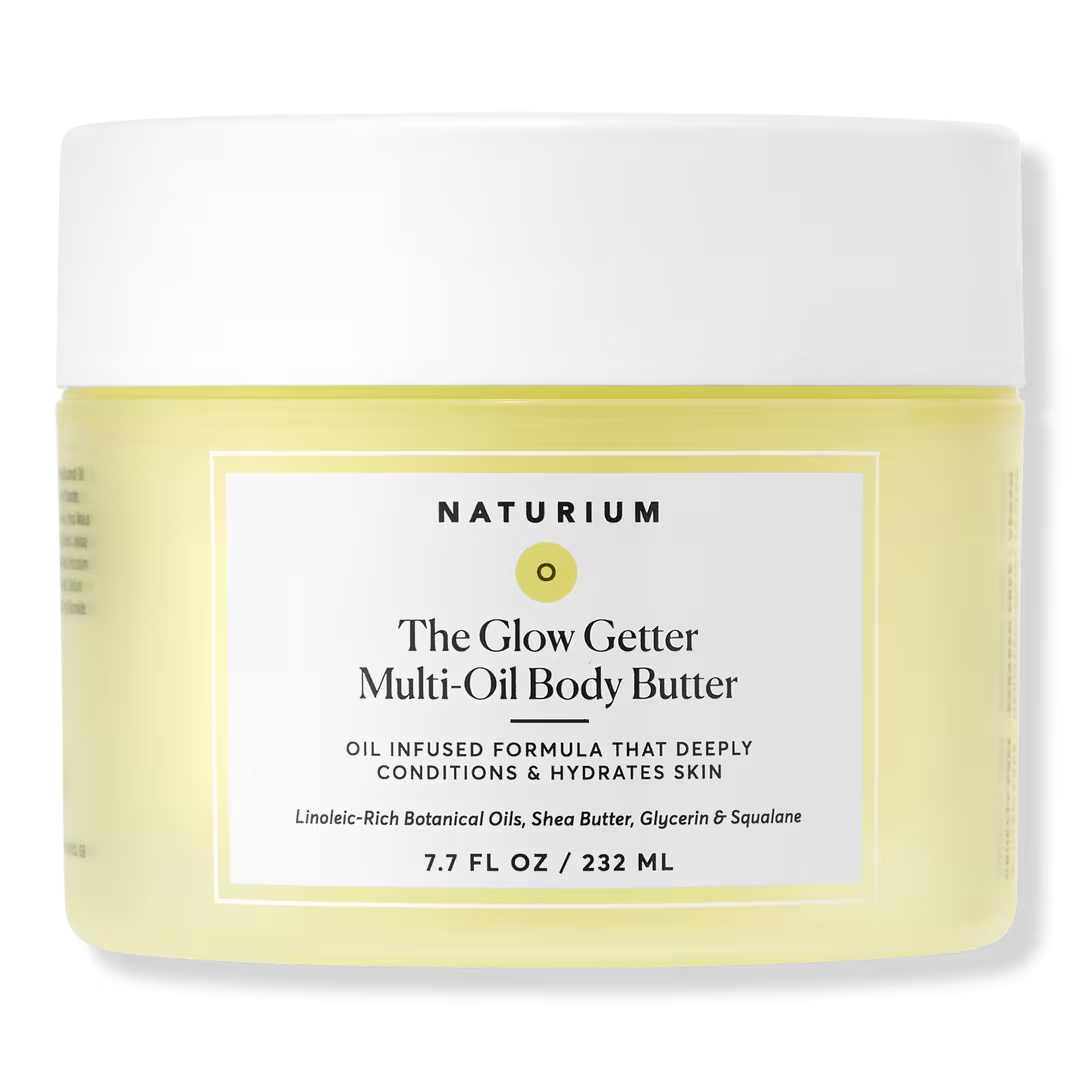
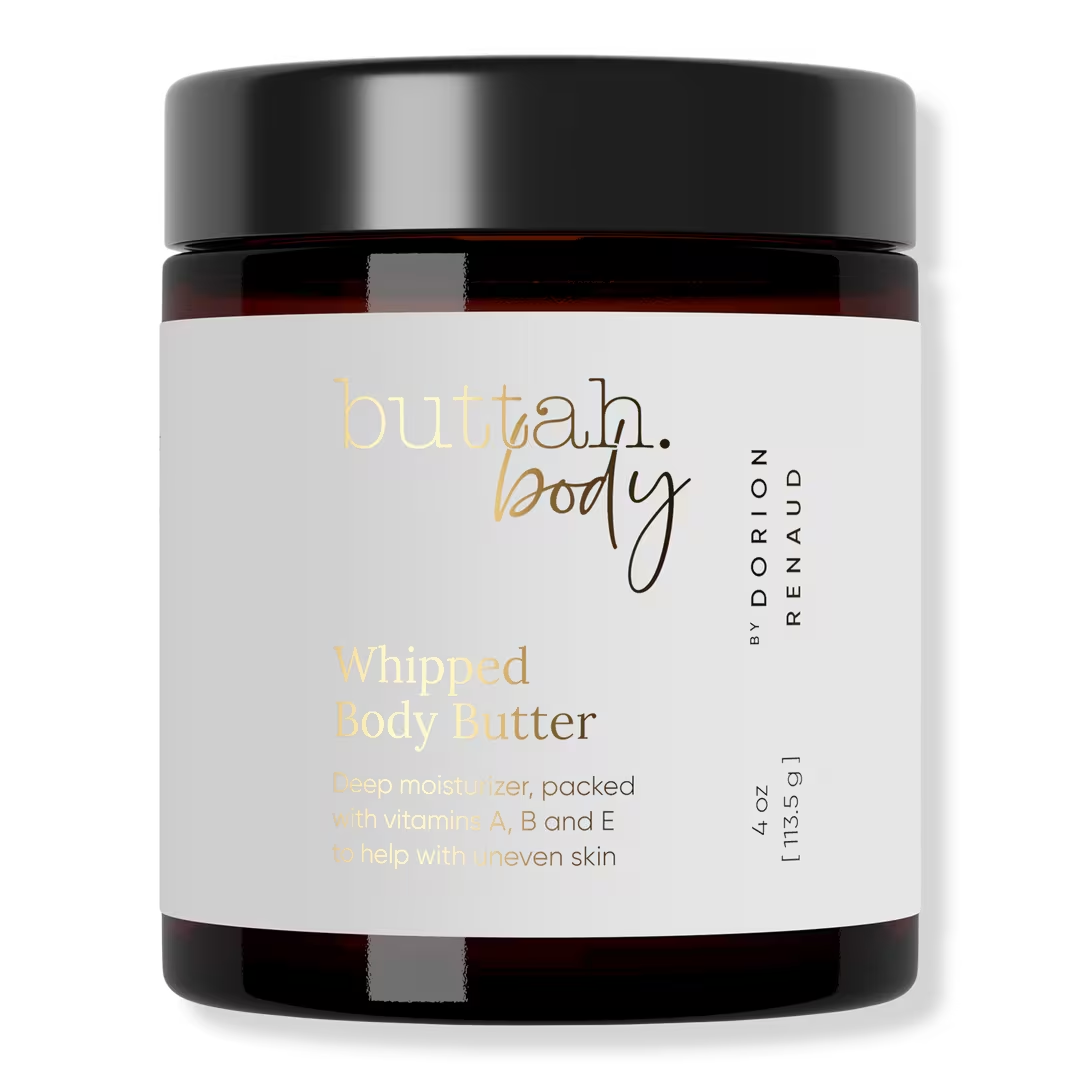


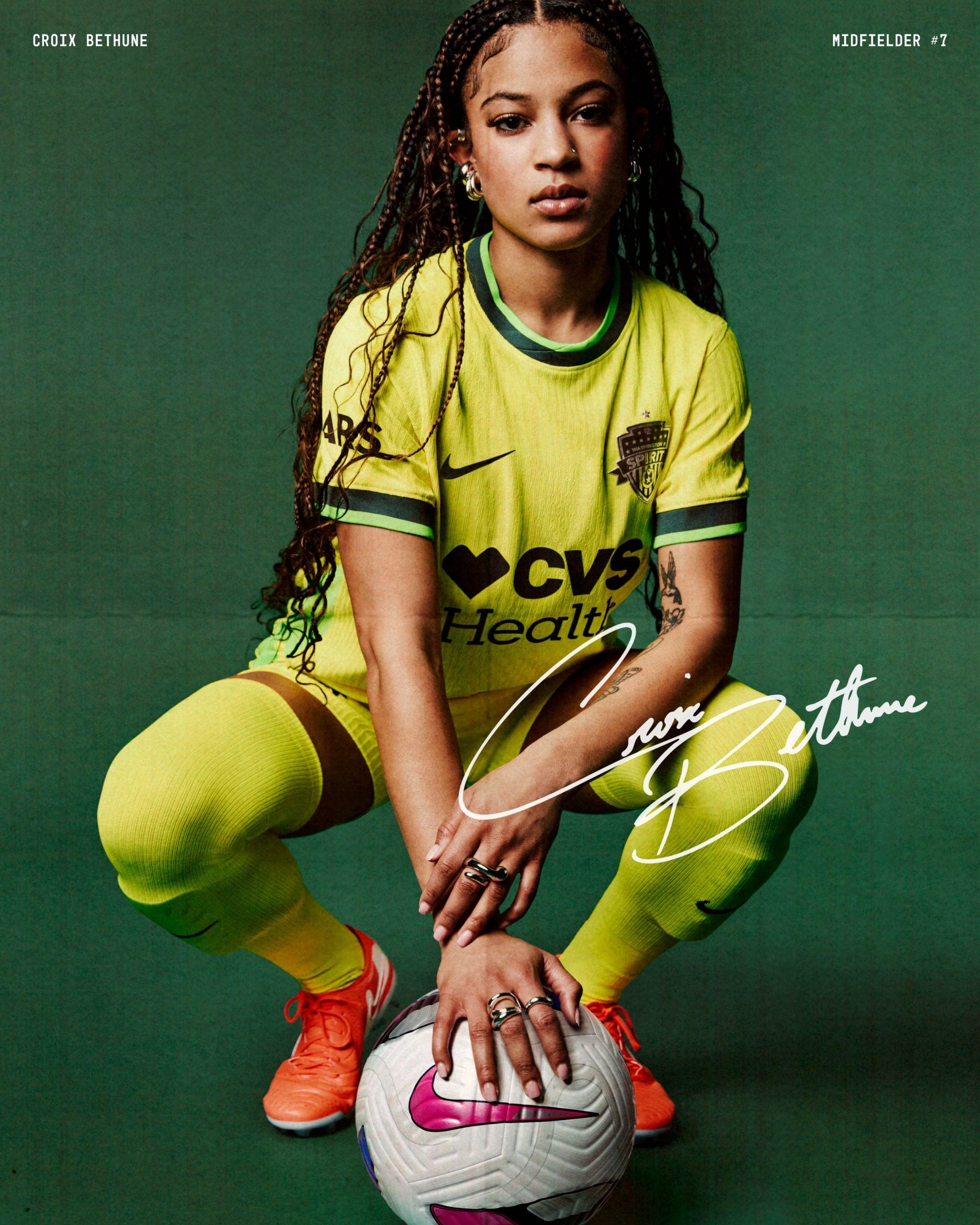

*****
These were years that answered. That reminded us to dance a dance so free that it warns those who would harm us that we’ve been to the future and already know that we’ve won. It was a decade that demanded clarity and deepened our collective resolve and purpose. We know that we were not ever intended to survive freely, so we must find, hold, and nurture joy whenever and wherever we can. As a dear friend of mine once told me, “What is, is, regardless of when.”
May the next ten years bring more peace, more justice, and more radical love. All we have to lose are our chains.
